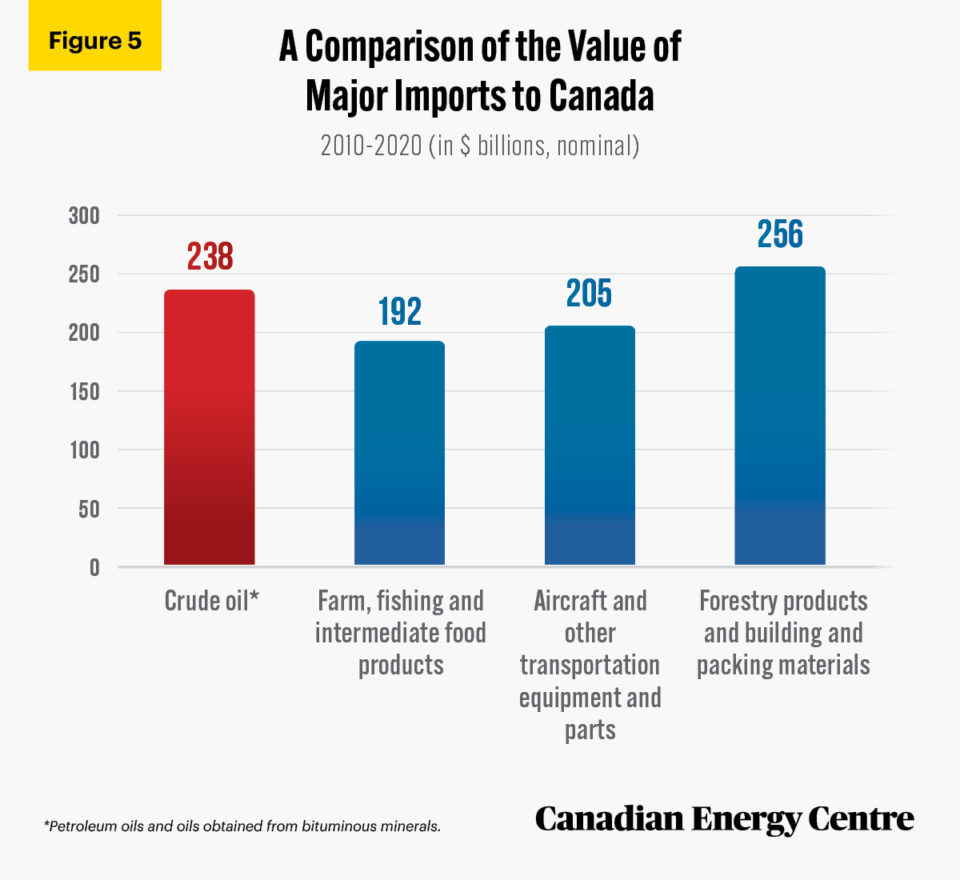China's Diversification Of Oil Imports: Canada's Growing Role

Table of Contents
China's Reliance on Middle Eastern Oil: A Historical Overview and Challenges
Historically, China's oil imports have been heavily reliant on Middle Eastern suppliers. This dependence, while convenient for a time, has created significant vulnerabilities. The region's inherent political instability, marked by ongoing conflicts and regional tensions, poses a considerable geopolitical risk to China's energy security. Supply disruptions, even temporary ones, can send shockwaves through the global economy, impacting China oil imports and impacting its economic growth. Furthermore, relying on a single region for such a crucial resource creates significant economic vulnerability to price volatility and potential manipulation. This over-reliance necessitates a strategy for diversification. Key concerns include:
- Political Instability: Conflicts and unrest in the Middle East directly threaten oil production and transportation.
- Supply Disruptions: Geopolitical events can lead to sudden shortages, causing price spikes and economic uncertainty.
- Price Volatility: Dependence on a single region makes China susceptible to price fluctuations controlled by external actors.
- Energy Security Risks: A single point of failure for such a vital resource poses unacceptable risks to China’s long-term economic and political stability.
The Rationale Behind China's Oil Import Diversification Strategy
China's proactive diversification of its oil import sources is driven by a multi-pronged strategic imperative. The core aims are to:
- Enhance Energy Security: Reducing reliance on a single region significantly mitigates the risk of supply disruptions caused by geopolitical instability or unforeseen events. This is paramount for maintaining economic stability and growth.
- Mitigate Geopolitical Risks and Price Volatility: Diversification spreads the risk, minimizing the impact of price shocks and reducing vulnerability to external political pressure.
- Secure Stable and Reliable Oil Supplies: Access to diverse, reliable oil sources is crucial for meeting the ever-increasing energy demands of a rapidly growing economy. This contributes to economic predictability and avoids supply chain bottlenecks. This strategy ensures the country has the necessary energy to fuel its ambitions.
These combined factors underscore the strategic necessity of oil price volatility mitigation and supply chain diversification for China's future.
Canada's Position as a Reliable and Stable Oil Supplier for China
Canada possesses vast oil reserves, particularly within its oil sands, making it a significant potential supplier for China. Unlike some other regions, Canada offers a stable political environment and a reputation as a dependable and trustworthy trading partner. Canadian oil, including that extracted from the oil sands, possesses qualities suitable for many Chinese refineries. The geographical distance necessitates efficient transport infrastructure, which is gradually developing. Potential pathways for Canada-China trade in oil include:
- Pipeline Expansion: Increased pipeline capacity, though complex to develop, is crucial for efficient transportation of Canadian oil to ports for export.
- Shipping Routes: Seaborne transportation plays a vital role in transporting Canadian crude to China.
- Technological Advancements: Innovations in transportation and logistics will be necessary to optimize the efficiency and cost-effectiveness of this trade.
- Refining Capacity: The suitability of Canadian oil for Chinese refineries is a key factor determining the volume of trade.
Canada's stability and substantial oil reserves position it as a crucial partner in ensuring China's energy security.
The Expanding Canada-China Oil Trade Relationship: Current Status and Future Prospects
While the current volume of Canada-China energy trade is not yet substantial compared to other sources, the potential for future growth is significant. The exploration of new bilateral trade agreements and collaborative projects could significantly boost this relationship. This expansion could involve:
- Pipeline Infrastructure Investment: Significant investment in pipeline infrastructure is necessary to significantly increase the flow of Canadian oil to Asian markets.
- Oil Extraction Technology: Continued investment and innovation in oil extraction technologies will make Canada an even more attractive supplier.
- Strategic Partnerships: Forming strategic partnerships between Canadian and Chinese energy companies could unlock significant synergies and accelerate growth.
Challenges and Opportunities for Enhanced Canada-China Oil Cooperation
Despite the potential, several challenges hinder the full realization of Canada-China oil cooperation:
- Environmental Concerns: Concerns surrounding the environmental impact of oil sands extraction must be addressed through sustainable practices and technological advancements in sustainable energy.
- Geopolitical Factors: Fluctuations in global political relations can impact trade relations and investment decisions.
- Competition: Canada faces competition from other oil-producing nations vying for the Chinese market.
However, substantial opportunities also exist:
- Technological Advancements: Continuous technological improvements in oil extraction, processing, and transportation can enhance efficiency and reduce environmental impact.
- Growing Demand: China's rapidly growing economy consistently requires more energy, creating an increasing demand for reliable oil supplies.
- Strengthening Diplomatic Ties: Cultivating stronger diplomatic ties and fostering mutual trust can lead to more substantial and long-lasting trade relationships. Overcoming trade barriers through diplomatic efforts is crucial.
Conclusion: Strengthening China's Oil Import Diversification through Enhanced Canada-China Collaboration
China's diversification of oil imports is a strategic imperative driven by energy security concerns and the need to mitigate geopolitical risks. Canada, with its abundant oil reserves, political stability, and reliability, is well-positioned to play an increasingly important role in meeting China's energy demands. The potential for growth in Canada-China energy trade is significant, but realizing this potential requires addressing environmental concerns and navigating geopolitical complexities. Further collaboration, bolstered by international cooperation, is crucial to overcoming challenges and maximizing the opportunities for mutually beneficial growth. We encourage further research and discussion on how to best leverage this relationship to strengthen China's diversification of oil imports and ensure a stable and secure global energy supply.

Featured Posts
-
 The Destruction Of Pope Francis Ring A Papal Tradition
Apr 23, 2025
The Destruction Of Pope Francis Ring A Papal Tradition
Apr 23, 2025 -
 Victoria Contundente De Rayadas Gracias A Doblete De Burky
Apr 23, 2025
Victoria Contundente De Rayadas Gracias A Doblete De Burky
Apr 23, 2025 -
 Dodgers Roberts Admits One Hit Changed The World Series Outcome
Apr 23, 2025
Dodgers Roberts Admits One Hit Changed The World Series Outcome
Apr 23, 2025 -
 Milwaukee Brewers Beat Cincinnati Reds 8 2 Chourios Impressive Performance
Apr 23, 2025
Milwaukee Brewers Beat Cincinnati Reds 8 2 Chourios Impressive Performance
Apr 23, 2025 -
 Thdyth Asear Alktakyt Alywm Alathnyn 14 4 2025 Fy Jmye Anhae Msr
Apr 23, 2025
Thdyth Asear Alktakyt Alywm Alathnyn 14 4 2025 Fy Jmye Anhae Msr
Apr 23, 2025
